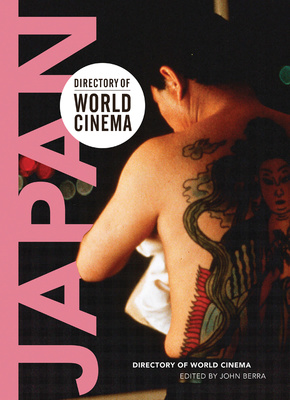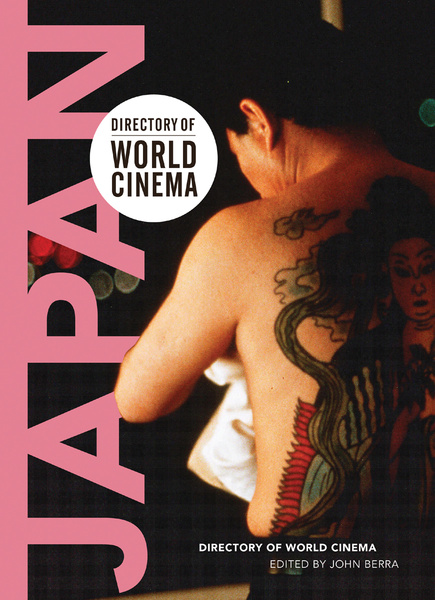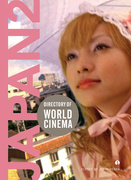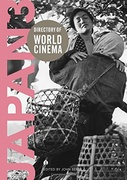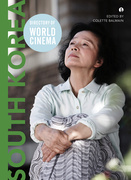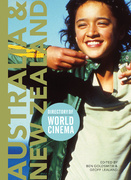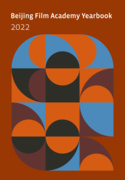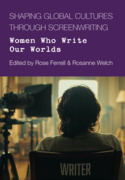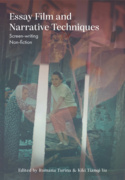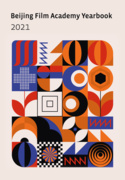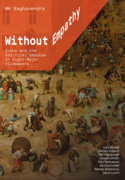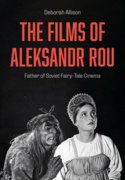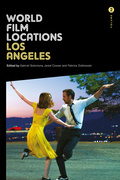Directory of World Cinema: Japan (Book)
Directory of World Cinema: Japan provides an insight into Japanese cinema through reviews of significant titles and case studies of directors, alongside explorations of the cultural and industrial origins of key genres. The book contains reviews, essays, research resources and full-colour film stills highlighting significant films and players.
Edition
From the revered classics of Akira Kurosawa to the modern marvels of Takeshi Kitano, the films that have emerged from Japan represent a national cinema that has gained worldwide admiration and appreciation. Directory of World Cinema: Japan provides an insight into the cinema of Japan through reviews of significant titles and case studies of leading directors, alongside explorations of the cultural and industrial origins of key genres. As the inaugural volume of an ambitious series from Intellect documenting world cinema, the directory aims to play a part in moving intelligent, scholarly criticism beyond the academy by building a forum for the study of film that relies on a disciplined theoretical base. It takes the form of an A–Z collection of reviews, longer essays and research resources, accompanied by fifty full-colour film stills highlighting significant films and players. The cinematic lineage of samurai warriors, yakuza enforcers and atomic monsters take their place alongside the politically charged works of the Japanese New Wave, making this a truly comprehensive volume.
John Berra is a lecturer in Film and Language Studies at Renmin University of China. He is the author of Declarations of Independence: American Cinema and the Partiality of Independent Production (2008); editor of the Directory of World Cinema: American Independent volumes 1, 2 and 3; editor of the Directory of World Cinema:Japan volumes 1, 2 and 3; co-editor of World Film Locations: Beijing (2012) and World Film Locations: Shanghai (2014); and co-editor of the East Asian Journal of Popular Culture. He has also contributed to Electric Shadows: A Century of Chinese Cinema (2014).
Introduction by the Editor
Film of the Year
Achilles and the Tortoise
Festival Focus
Nippon Connection
Industry Spotlight
The Arts Theatre Guild
Cultural Crossover
Art & Film
Directors
Takeshi Kitano
Satoshi Kon
Akira Kurosawa
Alternative Japan
Anime / Animation
Chambara / Samurai Cinema
Contemporary Blockbusters
Jidaigeki & Gendaigeki / Period & Contemporary Drama
J-Horror / Japanese Horror
Kaiju Eiga / Monster Movies
Nuberu Bagu / The Japanese New Wave
Pinku Eiga / Pink Films
Yakuza / Gangster
'Editor John Berra announces in the acknowledgments that ‘this volume was never intended to be a conventional film guide’. Rather than the A-Z run through of titles, or a year-by-year account of the highlights, Berra’s Directory offers instead a series of chapters mainly grouped around genres. There is also, though, a section on three key directors (Takeshi Kitano; Satoshi Kon and Akira Kurosawa), a nod to the film of the year (Achilles and the Tortoise) and a chapter on ‘The Art Theatre Guild’.[...] There are also, however, many formal observations and little details of character from the writers that make the book worthwhile, no matter its limitations, none more so than Bob Davis’s astute comments on Oshima’s Boy, with its useful analysis of colour in the film. ' Edinburgh Review
'Editor John Berra announces in the acknowledgments that ‘this volume was never intended to be a conventional film guide’. Rather than the A-Z run through of titles, or a year-by-year account of the highlights, Berra’s Directory offers instead a series of chapters mainly grouped around genres. There is also, though, a section on three key directors (Takeshi Kitano; Satoshi Kon and Akira Kurosawa), a nod to the film of the year (Achilles and the Tortoise) and a chapter on ‘The Art Theatre Guild’.[...] There are also, however, many formal observations and little details of character from the writers that make the book worthwhile, no matter its limitations, none more so than Bob Davis’s astute comments on Oshima’s Boy, with its useful analysis of colour in the film. ' – Tony McKibbin, Edinburgh Review
'The writing throughout is of a consistently high standard, incorporating a range of analytical approaches (be it social-political, aesthetic, or genre-based) according to the writers’ preferences. By focussing mainly on the cultural import of films within specific genres, the directory presents a very catholic selection. Admirably un-snobbish in its treatment of all the covered films, the articles are always marked by the sense that those writing are genuine fans.'

